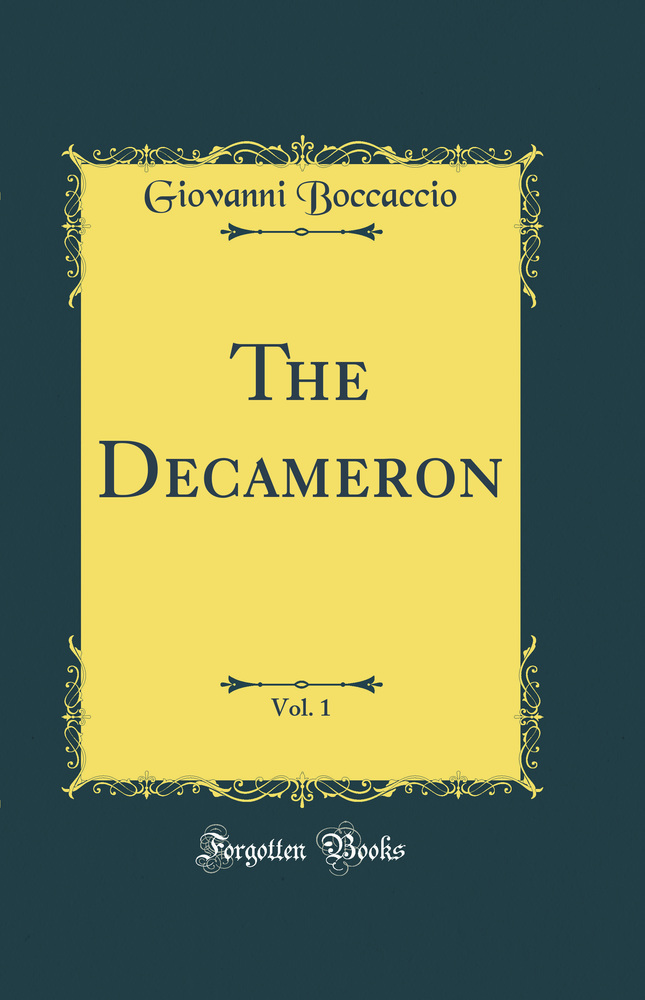Description
Son Ofa merchant, Boccaccio di Chellino di Buonaiuto, of Cer taldo in Val d''elsa, a little town about midway between Empoli and Siena, but within the Florentine contado, Giovanni Boccaccio was born, most probably at Paris, in the year 1313. His mother, at any rate, was a Frenchwoman, whom his father seduced during a sojourn at Paris, and afterwards deserted. So much as this Boccaccio has himself told us, under a transparent veil of allegory, in his dmeto. Of his mother we would fain know more, for his wit has in it a quality, especially noticeable in the Tenth Noyel of the Sixth Day of the Decameron, which marks him out as the forerunner of Rabelais, and prompts us to ask how much more his genius may have owed to his French ancestry. His father was of sufficient standing in F lor ence to be chosen Prior in 1321 but this brief term of othee - but two months - was his last as well as his first experienceof public life. Of Boccaccio''s early years we know nothing more than that his first preceptor was the Florentine grammarian, Giovanni da Strada, father of the poet Zanobi da Strada, and that, when he was about ten years Old, he was bound apprentice to a merchant, with whom he spent the next six years at Paris, whence he returned to Florence with an inveterate repugnance to commerce. His father then proposed to make a canonist of him but the study of Gratian proved hardly more congenial than the routine of the counting-house to the lad, who had already evinced a taste for letters and a sojourn at Naples, where under the regime of the enlightened King Robert there were coteries of learned men, and even Greek was not altogether unknown, decided his future career. According to Filippo Villani his choice was finally fixed by a visit to the tomb of Vergil on the Via Puteolana, and, though the modern critical spirit is apt to dis count such stories, there can be no doubt that such a pilgrimage would be apt to make a deep, and perhaps enduring, impression upon a nature ardent and sensitive, and already conscious of extraordinary powers. His Stay at Naples was also in another respect a turning.
About the Publisher
Forgotten Books publishes hundreds of thousands of rare and classic books. Find more at www.forgottenbooks.com
This book is a reproduction of an important historical work. Forgotten Books uses state-of-the-art technology to digitally reconstruct the work, preserving the original format whilst repairing imperfections present in the aged copy. In rare cases, an imperfection in the original, such as a blemish or missing page, may be replicated in our edition. We do, however, repair the vast majority of imperfections successfully; any imperfections that remain are intentionally left to preserve the state of such historical works.
Details
Publisher - Forgotten Books
Language - English
Hardback
Contributors
Author
Giovanni Boccaccio
Published Date -
ISBN - 9780265587539
Dimensions - 22.9 x 15.2 x 2.0 cm
Page Count - 364
Paperback
Contributors
Author
Giovanni Boccaccio
Published Date -
ISBN - 9781330653487
Dimensions - 22.9 x 15.2 x 2.0 cm
Page Count - 366
Payment & Security
Your payment information is processed securely. We do not store credit card details nor have access to your credit card information.

